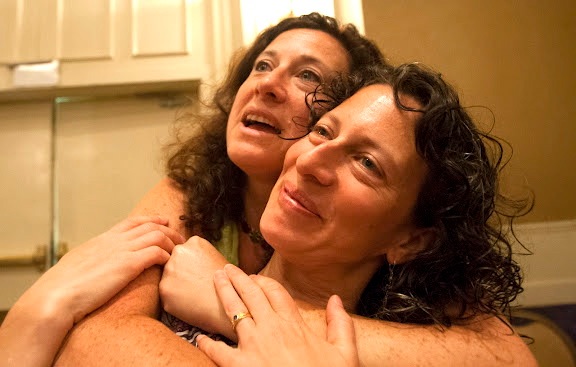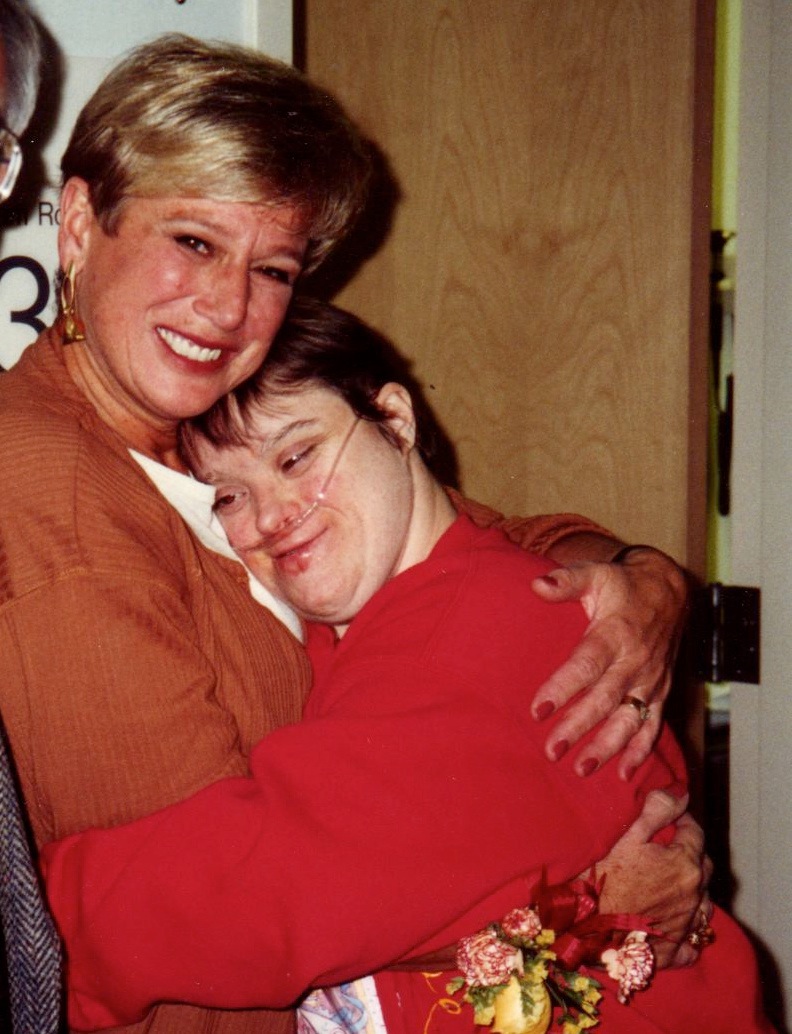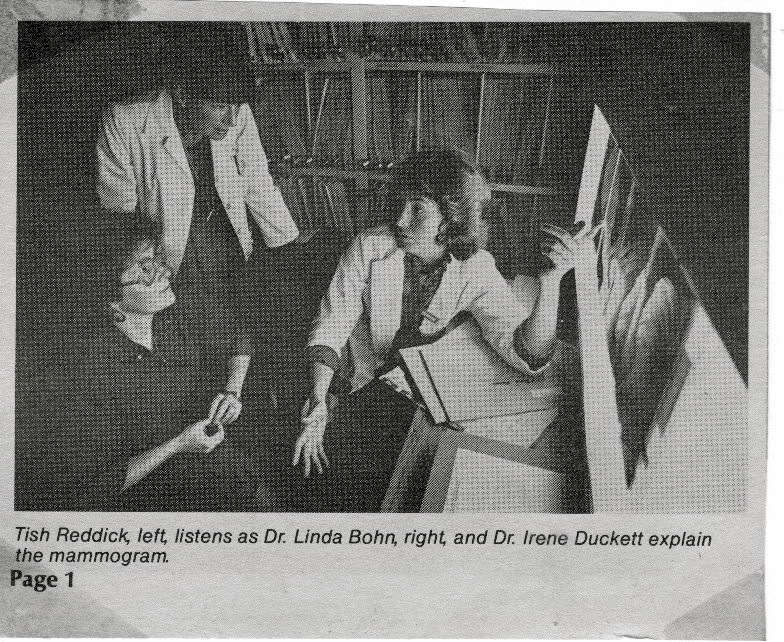XX in Health: A Family Affair
Danielle Cass is an innovation evangelist at Kaiser Permanente.
When my mom, Irene Duckett, graduated from medical school in 1964, women comprised less than 10 percent of her graduating class. After she received at graduation the first place prize in obstetrics & gynecology, her OB/GYN professor shook the hand of my dad instead of my mom and told him: “Congratulations. Now go home and make a real woman of her and give her lots of babies.”
She did go on to have lots of babies – four daughters – as well as a career in family practice in which she opened in 1986 the first comprehensive women-run health center for women in the United States.
With XX in Health Week upon us, it seems fitting to reflect on where women are today in terms of leadership in health care, how far we still need to go to achieve equal standing with men, and how one woman leader can have a positive rippling effect on other women.
As cited in Rock Health’s Women Leading Health Care video, women comprise 47 percent of medical school graduates today but only 4 percent of health care CEOs.
It was due to a unique woman CEO in the mid-1980s at the helm of St. Paul Ramsey Medical Center where my mom was a family practitioner that my mom was able to gain support to create a health center just for women.
“By 1986 it was obvious that women have different health care needs than men, and that women make the health care choices for their families. Yet many drop out of the health care system once they have completed their child bearing,” Irene said.
To overcome resistance of the hospital’s male-dominated board and turf battle concerns of the hospital’s male physicians, my mom leaned in to her strong, diplomatic woman CEO and delivered more than 50 lectures to women’s community and business groups on why women’s health was different to build support for the idea.
The Health Center for Women opened with daytime hours, two evenings a week and Saturdays to serve the schedules of women juggling careers and families, and quickly grew into a full-time clinic with primary care, OB/GYN, mental health, dermatology, internal medicine, surgery, nutrition services and educational seminars focused on women’s health and wellness. The Center was an immediate success; today, 26 years after Irene founded it, the Center serves 7,000 women patients throughout the Minneapolis – St. Paul area.
After a center in Chicago and ours opened, the idea of comprehensive women’s health centers really took off. It was an idea whose time had come,” Irene said.
Another other idea that spread to young women around Irene was that they too could be leaders in health care.
Barb Spurrier was the Clinic Manager at St. Paul Ramsey Medical Center a few years after the Health Center for Women opened its doors and was involved in its move from the hospital to the community. Now she is the Administrative Director of the Mayo Clinic Center for Innovation.
“It was amazing to partner with a physician like Irene so early in my career,” Spurrier commented. “I am forever grateful to Irene and other strong women role models who have made such a positive and powerful impact on my development and more importantly, to the field of health care. I am very thankful to be at an organization like Mayo Clinic that is actively working to advance its values of inclusivity and diversity.”
Beth Averbeck, MD, joined the Health Center for Women out of her residency when Irene was the medical director and years later took over as medical director when Irene retired.
“Irene was a mentor for leadership style – inclusive, consensus building, patient centered, flexible. What she modeled for me and other emerging physician leaders was the importance of taking care of your family and yourself and that by doing so, you were actually a better leader,” said Averbeck, who today is associate medical director of Primary Care for HealthPartners Medical Group overseeing clinical quality, governance and operations for 350 primary care physicians and 26 primary care clinics.
Irene’s career also had an impact on her eldest daughter, my sister Ilana. Today Ilana is a mother of three and vice-chair of the Department of Obstetrics and Gynecology, former director of its Gynecologic Oncology Fellowship Program and a Professor of Obstetrics and Gynecology at the Cedars-Sinai Medical Center in Los Angeles.
But back in 1995 when interviewing for a fellowship in a surgical subspecialty at a top-rated program, Ilana was asked what she would choose as her legacy: career or family, implying that she had to choose. When she replied “both”, she was asked why she was so confident that it could be done. “Because my mother did it,” she replied. “But I recognize that I was incredibly fortunate to have a role model who paved the way for me.”
Balancing career and family continues to be a challenge for women in medicine. Data shows that young women in medical practice are more likely to shoulder the burden of child and family care than their male peers, and more likely to take a hiatus from their practice.
“Women get fewer research study grants and are less frequently promoted to rank of full professor compared to men. What can be done?” Ilana said. “More companies need to have better child care. Very few hospitals have embraced child care, and women cannot extricate themselves from their home responsibilities without it.”
I continued the tradition started by my mom by joining the nation’s most innovative health system to help raise its visibility and help spread its innovative best practices. A big part of what drew me to Kaiser Permanente five years ago is how the organization encourages and supports its women employees and leaders. Kaiser Permanente Women in Technology is an internal networking and mentoring program with 1,500 members that supports the community of women in technology. Another business resource group is KP Women Embracing Life and Leadership, KP WELL, which has 1,467 members and provides women and men within Kaiser Permanente opportunities for education, networking, and development of leadership skills that enhance their work and life experiences.
Today women in health care have many more resources, from individual mentoring to groups such as KP WELL and Rock Health, than my mother did 40 years ago. Hopefully, together we can create a positive rippling effect that touches everyone.
Danielle Cass (@daniellecass) is an innovation evangelist at Kaiser Permanente, one of America’s leading health care providers and not-for-profit health plans, where she focuses on spreading innovation through technology-enabled health care – and encouraging and supporting her female colleagues.


